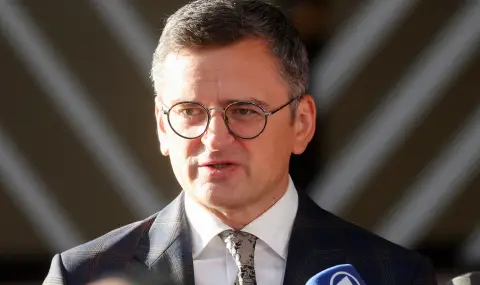The former Minister of Foreign Affairs of Ukraine, Dmytro Kuleba, said in an interview with "Politico" that he is skeptical about the possibility of the newly elected US President Donald Trump mediating a peace agreement between Russia and Ukraine, reports News.bg.
According to him, Russian President Vladimir Putin is not interested in a deal, and a possible change in American support could weaken Ukrainian defenses.
Fears of shift in US support
Kuleba warned that disarming Ukraine by the US would have catastrophic consequences. "The front line in Donbass will collapse, and the Russians will reach the Dnipro, Poltava and Zaporizhia," he said. He questioned the effectiveness of Trump's announced "quick deal" to end the war, as alleged territorial concessions from Ukraine are unacceptable.
Criticism of the West
Kuleba expressed frustration with the West's lack of a clear strategy for the war:
"You cannot win a war in which Russia and Ukraine have clear strategic goals, but the West, on which Ukraine depends, does not know what it is fighting for."
He warned that if the US changed its stance, Europe would have to dramatically increase arms production to compensate for lost support. According to Kuleba, countries such as France, Britain and the Baltic states are likely to increase their aid, but Germany could be a problem due to political instability.
War as Putin's personal obsession
Kuleba believes that for Putin Ukraine is a "personal obsession" and a means of demonstrating Western weakness. He noted that Russia has allies such as North Korea, which has sent soldiers to fight for Moscow, while support for Ukraine from Western countries remains insufficient.
State of European support
The former minister emphasized that the future of European support is critical for Ukraine. He expressed hope that Putin might make a mistake that angers Trump, which could lead to a reversal in the US position.
Criticism of Western reactions
Kuleba also criticized the reaction of Western leaders to French President Emmanuel Macron's proposal to send troops to Ukraine. According to him, his public rejection was a signal of weakness that Putin probably welcomed.
